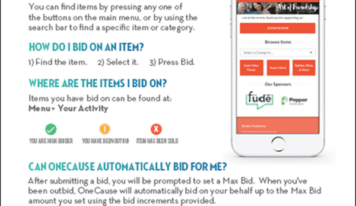Humane Society of Elmore County News
June is Adopt-a-Cat month for very good reason. Signs in yards, posts all over social media, friends and family asking most everyone – who wants a kitten. We are now well in the middle of what shelters call ‘kitten season’ and there are simply kittens everywhere. We adore cats but there is no doubt that kitten season is overwhelming for all of us. Perhaps you had a cat show up a couple of months ago, then she disappeared and when you saw her next, surprise – now she has 4, 5, maybe even 8 or 9 kittens in tow. If you want to keep a new stray, you need to get it spayed or neutered without delay to prevent even more unwanted litters.
So now you have kittens, or maybe puppies, or perhaps need to rehome your own adult dog or cat – what to do. Rehoming a pet is something that needs to be done deliberately and with great caution. We tend to cringe at “free to a good home” as 90 percent of the owner surrendered pets to our Shelter were obtained free. While owners trying to find new homes for pets may mean well & some free pets do end up in wonderful homes, we still strongly advise against this approach as “free” is all too often seen as “worthless.”
Studies show that pets obtained for free are less likely to ever be taken to a veterinarian for basic immunizations and checkups and we can attest that as easily 85% of surrendered pets to our Shelter have never been to a Vet and certainly are not spayed or neutered. Far too many of these free pets end up producing even more unwanted puppies and kittens which results in an exponential growth in even more unwanted pets with nowhere to go.
And while this is not intended to scare or offend, there are some harsh realities of what has been known to happen to “free” pets. Free pets are more likely to be abused and/or discarded because “there are plenty more where that one came from!” Be aware that as soon as you give that pet away you have no control over what happens to it. We beg you to take care and do all you can to make sure the new owners will give your pet a safe, responsible and loving home.
So what should you do if you need to re-home your pet? If your pet came from a responsible breeder, call them to see if they can take it back or assist with placement as a truly responsible breeder will be there for the animal they produced. You should consider charging a fee that will not only ‘value’ your pet but discourage resale of pets to others. Spay or neuter your pet to avoid attracting backyard breeders or puppy mill operators. Interview potential new owners by asking for their identification, phone number, previous pet experience, their current pets and children in the household, how the pet will be contained, and their veterinarian’s name as a reference.
Keep their contact info, call their veterinarian for a reference and if at all possible, visit their home to see how and where your pet will live before you release it to the new owner. For the puppies or kittens, or if you cannot afford to have your pet spayed or neutered, ask the new owner to pledge that they will have the puppy/kitten fixed by the time it is six months old and the adult immediately. If a potential adopter isn’t willing to give you their information or let you visit their home our advice is to politely send them away empty handed. You owe it to your pet to take the time and effort to make sure it goes to a good home
If time is critical or you are simply not willing to screen potential owners, then please take your pet to a reputable public or private shelter rather than give it away free to someone you know nothing about. Each county in our tri-county area has an open-admission shelter and while none of us can guarantee placement due to overwhelming numbers, we will do our utmost to find adoptable pets loving and lifetime homes. We work to screen & educate adopters to make sure they are appropriate and ready to take on a new pet and our adoption fees cover immunizations, de-worming, microchip (includes the registration) and the mandatory spay or neuter.
AND, if you take home a new Shelter Pet from our shelter and it does not work out, we will always take our adopted pet back. We committed to it once and will do the same if it is returned, armed with more information to help with a better placement.






